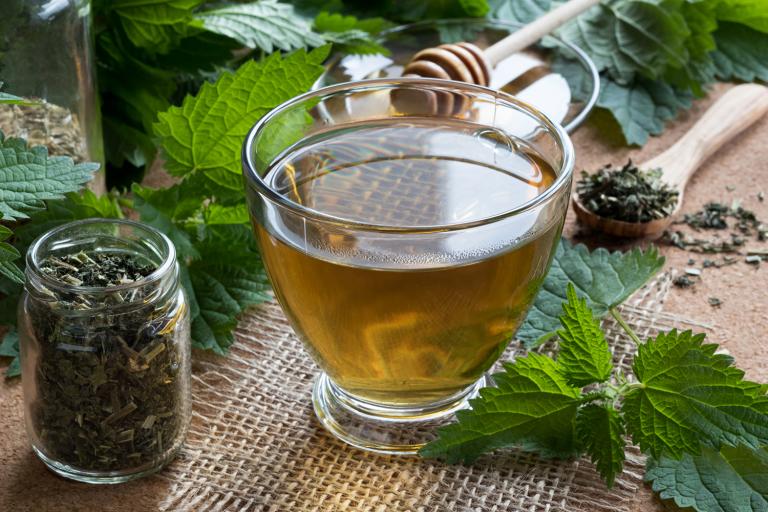Ah, when the days of summer are lazy, hazy, and making people crazy—with hay fever. Ragweed allergies hit hard this at this time of year. The unfortunates are easy to spot—their coughing, watery eyes, sneezing, and fatigue give them away. Among the sufferers are a growing number of middle-aged people who’ve never had hay fever before. Why the sudden uptick of seasonal allergies in the middle aged?
Why Allergies Develop During Middle Age
Allergy experts posit several reasons. Air pollution has been found to work synergistically with allergens to create more hay fever symptoms. There have also been increasing levels of pollen counts—both in terms of daily averages and “number of days when pollen exceeds a certain limit,” said Harsan Arshad, professor of Allergy and Clinical Immunology at the University of Southampton, in an interview with the Telegraph. In the past, an allergic response may not have been triggered because pollen levels were lower.
Climate change is also causing an increase in allergies. The Union of Concerned Scientists reported that “[c]arbon dioxide, the heat-trapping gas that is the primary cause of our warming planet, increases the growth rate of many plants and increases the amount and potency of pollen. Rising temperatures extend the growing season and the duration of allergy season.”
Fortunately, there are many ways to fight hay fever naturally.
Natural Remedies for Hay Fever
-
Butterbur & Nettles as an Antihistamine
Extracts of the herbs stinging nettle and butterbur help relieve seasonal allergy symptoms. Nettle decreases inflammation and acts as an antihistamine. Butterbur also works as an antihistamine, and research shows it can be as effective as Zyrtec and Allegra—without as much drowsiness or fatigue.
If you want to try butterbur, look for Petadolex; this is a special extract of the herb that removes the liver-toxic pyrrolizidine alkaloids from its roots.
-
Garlic for Sinus Congestion
This common kitchen herb helps treat allergy-related sinus congestion and coughs. With more than 70 active ingredients, garlic can also help reduce inflammation and boost the immune system.
Other remedies for seasonal allergies include Pycnogenol, a pine bark extract rich in antioxidants, and bromelain, an enzyme derived from pineapple that can reduce nasal swelling and inflammation.
-
Medicinal Mushrooms for Immunity
“Allergies occur when the immune system is irritated and malfunctioning, eliciting an immune response to otherwise harmless substances,” said herbalist Maria Noël Groves. “Over time, you may be able to decrease incendiary inflammation and retrain the immune system so that you’re less reactive to pollen.”
To do so, Groves recommends medicinal mushrooms including reishi, chaga, and shiitake, as well as astragalus root. All appear to strengthen the immune system, she said.
Homeopathy v. Hay Fever
Researchers have found certain homeopathic treatments help with hay fever. One study showed that hay fever symptoms were better reduced by a homeopathic remedy compared to placebo. In another study of patients with hay fever, the authors found that “the homeopathy group had a significant objective improvement in nasal airflow compared with placebo group.”
Several homeopathic medicines, including those manufactured by Boiron, can target specific allergy symptoms. Here are a few to consider.
Nasal congestion: Apis mellifica relieves nasal congestion with stinging pain and swollen nasal mucosa caused by allergies.
Sneezing: Reach for Galphimia glauca, which helps with sneezing fits associated with hay fever.
Eye allergies: Euphrasia officinalis relieves abundant and irritating eye discharge.
General allergy symptoms: Histaminum hydrochloricum is well-known and widely used to ease a variety of allergy symptoms, including sneezing, runny nose, and itching.
Burning nasal discharge: Kali iodatum alleviates burning discharge, especially when accompanied by with pain at the base of the nose.
Runny nose: Natrum muriaticum targets a runny nose from allergies with clear, watery discharge that is worse in the morning
Lifestyle Hacks for Hay Fever
In the battle of human versus ragweed, more than herbs are needed. Saline sprays or xylitol sprays help unclog the nose, reduce inflammation, decrease postnasal drip, and flush away allergens. A neti pot works similarly.
Wraparound sunglasses can protect eyes from pollen as can eye drops. During a high pollen day, take a shower when you get home and change your clothing. Keep windows shut as much as possible. Avoid doing yard work.
Certain foods fight allergies by boosting immunity and triggering allergy-easing processes in your body. In addition to garlic, eat broccoli, citrus fruits, onion, and leafy greens like collards and kale.

